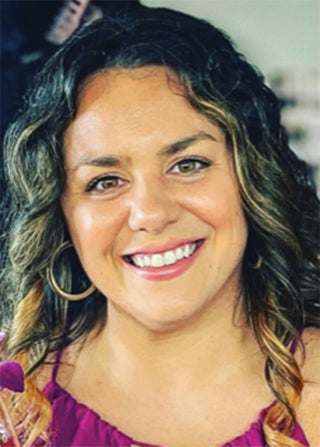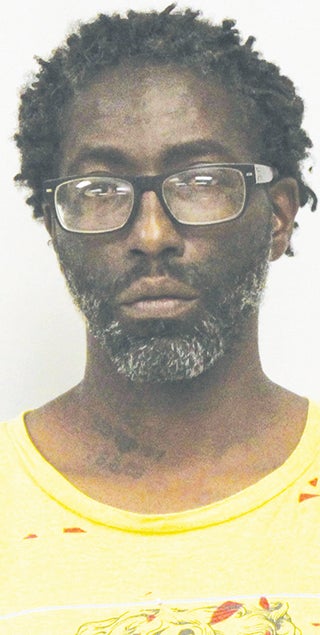Vaccine hesistancy: Doctors try to dispel rumors, spread truth
Published 11:26 am Wednesday, May 12, 2021
|
Getting your Trinity Audio player ready...
|
By Meredith Radford
UNC Media Hub
Annamarie Marinelli, an English teacher at Northwood Temple Academy in Fayetteville, doesn’t think the COVID-19 vaccine is for her.
“There are a lot of people who I know who have gotten it and they’ve had significant side effects,” Marinelli said, “and I personally, I don’t want to go through that.”
According to the CDC, side effects for the first few days after receiving the vaccine are normal.
“I’ve never been a person that needs a flu shot or anything, I’ve just never felt the need to get one,” she said. “I just don’t see how the research and everything within the past year can say ‘OK so now we have this vaccine.’”
“I don’t feel quite comfortable concerning what the truth is and what’s not,” she said. “I just don’t want to get into it, that’s why I just want to opt out of it.”
Marinelli is one of the millions of Americans who, so far, have not received the COVID-19 vaccination. According to the Centers for Disease Control, 32% of the United States population is fully vaccinated for COVID-19 and 45% have had their first dose. In North Carolina, 43% are fully vaccinated according to the Department of Health and Human Services.
John Sanders, a professor of medicine and chief of the section of infectious disease in the Wake Forest University School of Medicine, said it was an amazing success in compressing the vaccine process.
“But it is wrong to think that they invented vaccines 18 months ago and had them approved in less than a year,” he said. “We’ve been doing gene-based vaccine studies since the 90s.”
Tony Moody, a professor in the department of pediatrics in the Division of Infectious Diseases at Duke University Medical Center, said the vaccines were developed quickly because of the need to get them out to the public.
“The technology has been evolving so that we could turn these vaccines around very quickly,” Moody said.
Moody said they did not cut corners in the development of these vaccines. He said in this round of vaccine development, they were able to compress the length of the process while still being concerned about safety.
“For people who are worried about getting the vaccine because it happened so fast, people have dedicated their whole careers to get us to this fast response,” Sanders said.
Marinelli said she’s not in the group at risk of getting COVID-19.
“My health is good and I’m young,” Marinelli said. “I’m relying upon my own immune system and also just my faith, God protecting me and keeping me healthy. As long as I wash my hands, I wear my mask, I do what we’re supposed to do, I believe I’m going to be perfectly fine without the vaccine.”
Moody said that getting the vaccine, wearing masks and social distancing is the route to get past the pandemic.
“What people have to understand is that this virus is one that you can be completely asymptomatic,” Moody said. “You can infect other people, have no idea that you are putting other people at risk.”
He said he thinks the country will get to a point where the vaccines are licensed and that it will end up being a required vaccine in the school system. Moody said that will lead to immunity in the community, which is something that’s been done for other viruses.
Marinelli said if getting the COVID-19 vaccine is made mandatory for teachers, she would look for another career.
“I’m all about liberties and freedoms and the right to choose, so I want that to be respected,” she said.
Moody said he understands personal liberties and autonomy are important.
“However, I also think that Americans, when they are at their best, are concerned about other people and that part of being vaccinated is not just about self,” Moody said. “It is about selflessness. It is about ‘how do I protect other people who maybe can’t get vaccinated or won’t respond to the vaccine?’”
Moody said there is a correlation between voting patterns and peoples’ willingness to take the vaccine.
“I don’t know that that’s particularly surprising, especially after the last decade or so of politics that we’ve been through, but it is very frustrating,” he said.
Misinformation has also been spread about the vaccines.
“For example, the microchip thing,” Moody said. “We don’t need people to microchip us, we’ve done it to ourselves. We carry around smartphones that essentially tell people exactly where we are and what we’re doing at all times.”
And, he said, there’s also no mechanism to microchip.
Another common rumor about the mRNA vaccines is that they could alter DNA.
Sanders said that mRNA is the messenger signal to tell the rest of our cells to make a protein, and then it rapidly degrades.
Sanders said vaccine hesitancy is about how people feel rather than intellectual concerns.
“It ties into a belief system,” Sanders said. “Most of the time this is not a discussion about, ‘let’s do the math problem together and agree that this is the right answer.’ It’s much more subjective than that.”
He said the way to persuade people to get vaccinated is to be empathetic toward their concerns.
Moody said the idea of ‘herd immunity’ is to break transmission chains.
“If you get sick, and you come into contact with people who are susceptible, the disease is going to spread,” Moody said. “If you get sick and you come into contact with people who are not going to get sick, not going to spread that virus, then you contain it.”
He said they don’t know the exact number necessary to reach that goal because they are still gathering data, but based on knowledge from past diseases, it probably needs to be 80-85 percent coverage.
Sanders said that at least a quarter to a third of adults had been infected by the time vaccines rolled out, but that it doesn’t mean they necessarily had immunity.
Sanders said they did a study at the beginning of the year, asking about 20,000 North Carolinians if they would get the vaccine. 75 percent said yes, about 15 percent were hesitant and 10 percent said no.
He said that previous epidemics have shown that people tend to respond to what the rest of the community is doing, so those who are hesitant will be more likely to come around once others in their life have been vaccinated.
He said the last 10 percent may never get the vaccine without legal requirements, but it may not matter because they are likely to get infected and have some immunity.
“Really what we’re going after is population protection,” Sanders said.
Sanders said there were no serious adverse events in the clinical trials of the COVID-19 vaccines in the U.S.. The Johnson & Johnson blood clotting issue is concerning, he said, but it is one in a million. He said it will likely be used again after more research is done on that vaccine and the rare clotting.
Sanders said the only adverse events tied to Moderna and Pfizer are people passing out at vaccine clinics.
Though approved under an emergency use authorization, Sanders said this was just the expedited way of getting the vaccines to the public. He said the vaccines will be fully FDA approved, it is just a matter of going through the full bureaucratic process of making that happen.
For those concerned about potential unknown long term vaccine effects, Sanders said we’ve never seen a long term effect from vaccine technology.
“The one that gets most often cited, unfortunately, is autism and that was based on not just erroneously interpreted data, not just a difference of opinion about how to view the data, actually fraudulent data,” Sanders said.
He said any problems they do see in vaccines tend to appear in the first two weeks to at most the first two months.
“There is nothing that is 100 percent safe. Life is not 100 percent safe,” he said. “What I can say is that the risk of the vaccines is so much lower than the risk of actually getting the disease or then giving the disease to someone else.”
Moody said we all want to get back to some kind of normalcy, and the fastest way to do that is to get vaccinated.
Radford is senior in the Hussman School of Journalism and media double majoring in journalism and political science. She is a producer for the Hussman school’s radio show, Carolina Connection, and a podcast producer for the Daily Tar Heel, as well as a writer. She is an intern with the public information office of the N.C. attorney general. She hopes to pursue a career in radio or audio journalism in the future.



